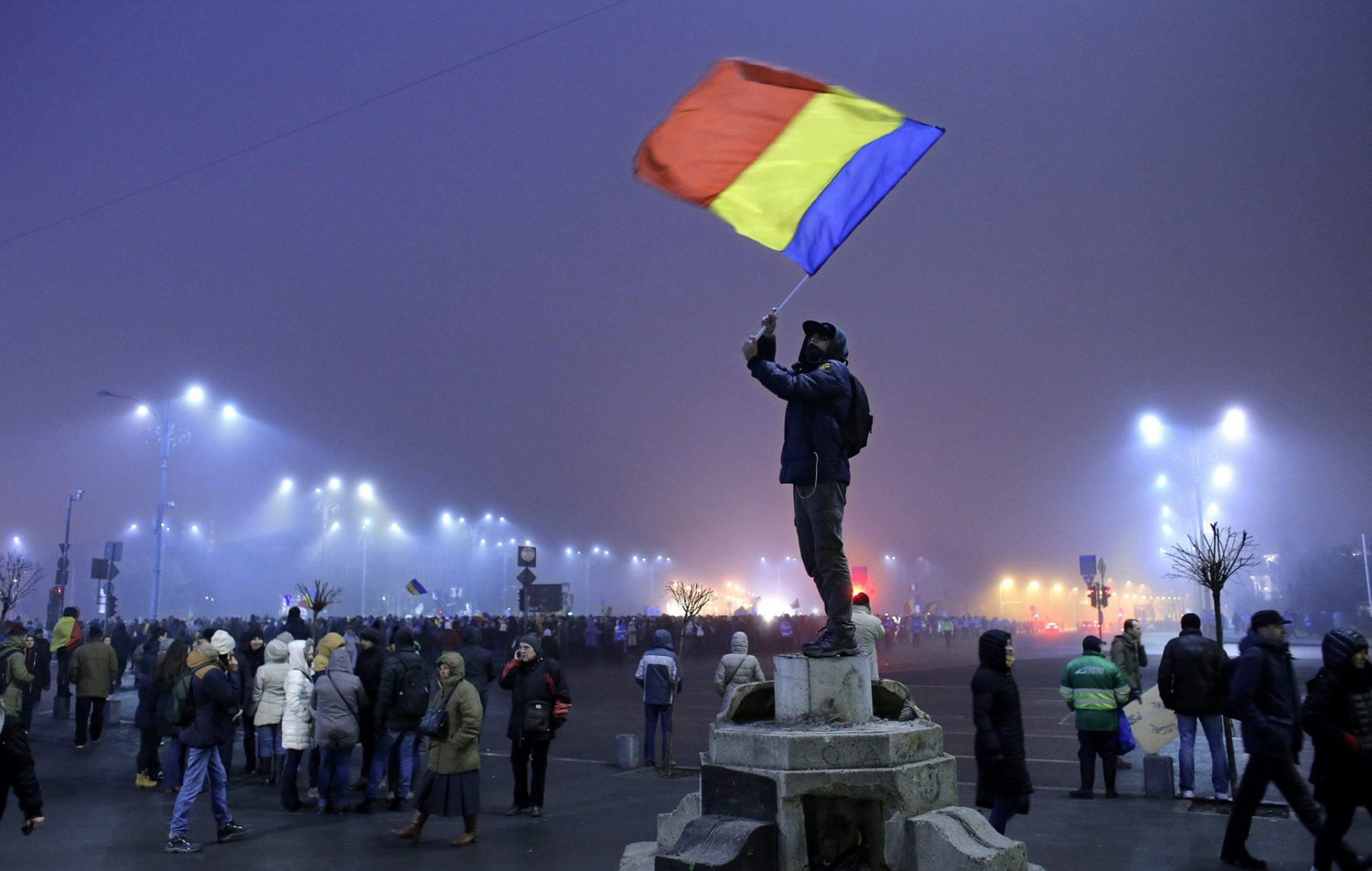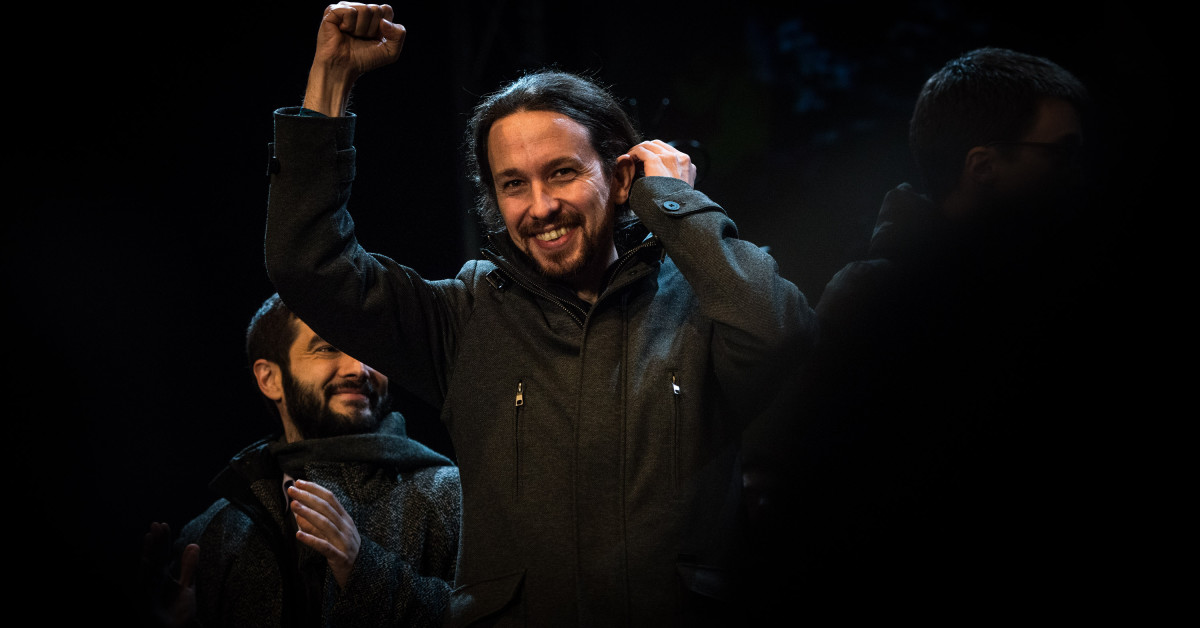
[authorbox authorid=”90″ title=”The Author”]
After more than a month, the military prosecutors did not make light in the opened file for vandalism acts that took place in the night of 10 August 2018, in Bucharest. Who bears the responsibility for the violence which left behind more than four hundreds of victims?
Those who evacuated Victory square at order or those which gave the order of evacuation? Who coordinated the action of evacuation? A colonel, a major? As if prosecutors have fears to give names, to name the guilt for, of who’s responsible,the problem of responsibility and judgment is left in the hands of nobody. But there where anyone can be blamed for a coup d’état, nobody is guilty in fact.
The accusations that Romanian diaspora received in the last month are almost fantastische. Diaspora was financed from abroad by a paramilitary organization to turn upside down the actual government, attack an empty building without representatives inside, in some words for a coup d’état?
Similar accusations received the protesters from Kiev four years ago. Than Moscow feared for a coup d’état, that Euromaidan protests could change the government. With the same irrational fear were welcomed protesters in Bucharest by Romanian gendarmerie, but from where forces of order knew that exists an attempt to overthrow the government as in case of Kiev? Was it a coup d’état in the night of 10 august at Bucharest?
The brutal intervention of Romanian gendarmerie, which resembles in many ways with the intervention of Kiev, shows clearly that they were prepared for a coup d’état. Despite of statements made by official representatives in a press conference at short time after incident, the intervention of gendarmerie was visible disproportionate in rapport with the peaceful manifestations of protesters.
—
This disproportionate intervention could be explained only if gendarmes received information that exists a tentative of overthrowing the government. The whole artillery used for re-establish public order, among was found and lethal munition, toxic gases like CS, consolidate this supposition still unconfirmed by Romanian Intelligence Service, gendarmerie’s representatives, of the ruling party and from Ministry of Internal Affairs.
All the more we saw a planned action, not a spontaneous one, coordinated by Colonel Catalin Paraschiv. The intervention of assault troops reached maximum of violence around eleven o’clock at the command of “white ghost”, colonel Paraschiv dressed in white, a contrast of color in the crowd, much easier to be identified of his subalterns in black uniforms. Is not less important that in square were present in that night and ex-chief of Romanian gendarmerie, Sebastian Cucos, together with new General Director, the major Laurentiu Cazan. Their presence confirms once more the premeditated character of whole action[i].
Number of those who participated at protest and have inhaled toxic gases with serious consequences for their health is over 100.000 of thousands, as the surface of a city. If will use the term “massacre”, even of “administrative murder”, in which were involved representatives of state’s institutions, public functionaries, we think is no exaggeration.
The premeditated character of murder is negated by representatives of Romanian gendarmerie, like colonel Paraschiv, who sustained after audiences from Prosecutor General’s Office that his men made his duty and have actioned in the name of Law. But the Law in Romania, starting with the changes of Penal Code voted this summer, is more in favor of criminals instead of civil.
The answer of colonel Paraschiv reminds us of the historical answer of lieutenant-colonel Eichmann which at his trial, where he was accused for crimes against humanity, declared that he actioned in the name of duty and Law. Adolf Eichmann was guilty for implementation of the final solution in Nazi Germany which sent at death in concentration camps, the gas chambers, more than 6 millions of Jews and other ethnics groups[ii].
As in case of colonel Paraschiv, he was a small cog in a huge bureaucratic administration. The assault troops of Paraschiv reminds of assault battalions, S.A., from the very first years of arrival at power of National-Socialists in Weimar Republic, which later were put in the service of the Führer and his party.
If was a coup d’état in the night of 10 august at Bucharest, who wanted to turn upside down the government? Those rumors born from an irrational fear spread just with few days before of arrival at home of Romanian diaspora are not betraying maybe a hidden will of suspending of the country president, Klaus-Werner Johannis?
Rumors that appeared in a context full of changes caused by judicial Reform and hallucinating suggestions, like that of ex-Financial Minister, Darius Valcov, who on his Facebook page has associated the image of totalitarian leader, Adolf Hitler, to the president of state[iii]. A resemblance that should be preserved only for those who behave as totalitarian leaders.
The irresponsible public statements, changes of Penal Code from last months will position Romania in an uncertainty place, neither in Occident, nor in Orient. Is there a merely coincidence that those happened just before to take the Presidency of European Council? Were the vandalism acts a threat of the hybrid war?
At the beginning of October, the Romanian situation will be openly discussed in a public debate at Strasbourg. What the government Dancila will say with regard to the violent acts which has scandalized a whole world? Audiences in the file 10 august 2018, Victory square, started. We saw many witness, suspects, but no guilty.
The file reveals a closed system of relations that could be compared with la piovra, where a name leads to another name, and an institution to another institution. As in a domino game, if a piece falls, all the system of relations collapse[iv].
[i] Colonel Sindile Ionut Catalin, the ex-adjunct of Sebastian Cucos, was promoted soon after the protest, on 15 August 2018, as the new General Inspector of Romanian Gendarmerie for a period of six months. In his place was named the ex-General Inspector, Sebastian Cucos, a castling that prejudices the independence of Romanian Gendarmerie. Colonels Sindile, Paraschiv, the ex-chief Cucos, alongside to major Cazan and state secretary, Mihai Chirica, were cited as suspects in the file of 10 August. At the Prosecutor General Office was also audited the leader of Social-Democrats, Liviu Dragnea, in quality of witness. Critic’s voices accuses Dragnea for standing behind the evacuation order signed by the prefect of the capital, Speranta Cliseru. To be seen Romania investigating charges of police violence at protests, Radio Free Europe (August 14, 2018), https://www.rferl.org/a/romania-investigating-charges-police-violence-protests-bucharest-iohannis/29431591.html.
[ii] Hannah Arendt, Eichmann in Jerusalem: a report on the banality of evil, The Viking Press, New York, 1964. Also, Responsibility and judgment, Schocken Books, New York, 2003, p. 29.
[iii] The ex-Financial Minister, Darius Valcov, posted on his Facebook page an image which associates Romanian president, Klaus Johannis, with the figure of totalitarian leader, Adolf Hitler. The posted image depicted from a “cascade” of irresponsible statements made this summer shocked the Western culture. In this direction, see https://www.haaretz.com/world-news/europe/germany-slams-romania-over-hitler-mustache-facebook-post-1.6461811.
[iv] Reinhard Veser, Rumänische Justiz in Gefahr: Die Partei hat immer recht, Frankfurter Allgemeine, Politik (January 17, 2018), http://www.faz.net/aktuell/politik/ausland/rumaenische-justiz-unter-dem-politischen-einfluss-von-liviu-dragnea-15402271.html.





1 Comments
AFG
Hi,
First of all, I would like to point that it is very refreshing and highly appreciable that this piece of news is neither forgotten nor drown in the background some time after this conundrum.
But, I would like to add a few things.
First, “the Romanian situation will be discussed in Strasbourg at the start of October” is kind of very imprecise (*who* will discuss the situation? academics? journalists? a think tank?), especially considering this was published *after* the debate started. For reference, this discussion was announced here:
http://www.europarl.europa.eu/news/fr/agenda/briefing/2018-10-01/3/etat-de-droit-en-roumanie-l-independance-de-la-justice-en-debat-en-pleniere
The debate took place in the Europarl session on the 3rd of October and is visible here:
http://www.europarl.europa.eu/sides/getDoc.do?pubRef=-%2f%2fEP%2f%2fTEXT%2bCRE%2b20181003%2bITEM-003%2bDOC%2bXML%2bV0%2f%2fEN&language=EN
And there should be a proposed resolution on the 1st of November, proposition which will be debated on the 22nd of October (I’m writing this on the 19th):
http://www.europarl.europa.eu/ep-live/en/committees/video?event=20181022-1930-COMMITTEE-LIBE
Second, your article does not answer to the title question – it does hint there is an obvious answer, which is “no”. For those present on the day in Bucharest, the answer is more so obvious: “No, and the Gendarmerie was there to repress without any discrimination – as some tourists – http://www.ziare.com/stiri/protest-diaspora/ambasada-israelului-patru-turisti-israelieni-au-fost-batuti-de-jandarmi-la-protestul-de-vineri-este-inacceptabil-1525385 – and taxi driver – https://www.libertatea.ro/ultima-ora/un-taximetrist-ar-fi-fost-batut-de-jandarmi-dupa-mitingul-diasporei-2361448 – discovered. So please, say it! As you have said, a *lot* of rumours are running around, so please dispel them clearly! I was in Bucharest that night, and I’m not even sure about the story of the taxi driver!
Third, your analysis fall short on some points. While you recognize the mechanism and identify those who where in charge and those behind them pulling the strings, in my opinion, you don’t address the root problem: why is “la piovra” the main force in the Romanian parliament? why are all these reforms accepted by the population at home and rejected by the diaspora? Why do Romanian people vote for politicians that are obviously, if not corrupted themselves, following the orders of corrupted people? The answers are not so obvious, and are a part of the equation much needed to understand the complete picture. And especially, if you’re addressing people from abroad, there’s little chance they could be knowledgeable on the subject.
At last, I would like to thank and encourage you, as this article (and also the one about Poland) are the things that need to be shown on the public space. Some internal debate exists in Romania, in Poland, also in Hungary and Bulgaria. But “westerners” are not aware of all the turmoils of politics in these countries. So you’re doing something very important, and for that, I thank you.
Comments are closed.